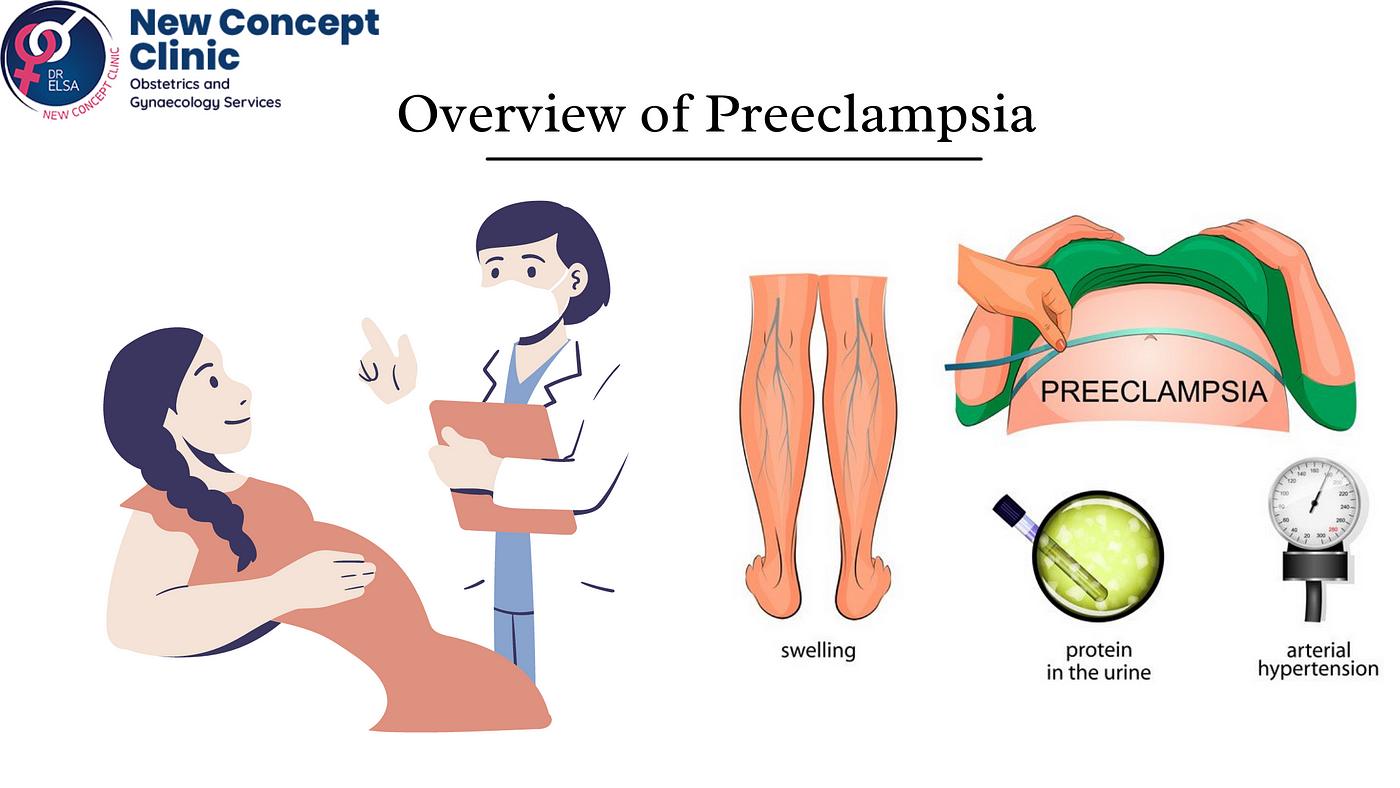
Most soon-to-be mothers would agree that pregnancy is a challenging time unless you are lucky enough to not feel much. Pregnancy brings swelling, aches, nausea, and other unwelcome symptoms resulting in changes in the body. Just like these pregnancy symptoms, one common problem is Preeclampsia affecting around 5 to 8 percent of pregnancies.
Striking fast and unpredictably Preeclampsia is a condition occurring in pregnancy that involves high blood pressure, swelling of hands, feet, protein in Urine, etc. Ranging from mild to severe preeclampsia usually takes place late in pregnancy or just after the delivery resulting in health risks both for mom and baby. If the symptoms of Preeclampsia are severe it leads to seizures leading to eclampsia only treatable by giving birth. Even after giving birth the symptoms of preeclampsia can last 6 weeks or more than that.
Signs & Symptoms of Preeclampsia
In general, the signs and symptoms of preeclampsia are often ignored unless the doctor screens the blood pressure and urine of the soon-to-be mother. The major symptoms linked to preeclampsia are:
- High blood pressure (Hypertension)
- Changes in vision
- Lower back pain
- Difficulty in different organ
- Traces of protein in the urine
- Shortness of breath
- Nausea
- Headaches
- Swelling
- Low platelets
Who’s at Risk?
A pregnant woman is said to be at risk if the following factors are present.
- High blood pressure before pregnancy
- Having Vitro fertilization
- Being younger than 20 years
- Being older than 35 years
- A history of preeclampsia
- Obesity
- First-time pregnancy
- Kidney problems
- Immune system disorders
- Multiple pregnancies
Complications of Preeclampsia
The risk factors linked to preeclampsia can affect both the mother and baby. The general complications attached to that of preeclampsia are:
- Organ damage like kidney, liver, lungs, heart, eyes).
- Preterm birth
- Fetal growth restriction
- Seizures
- Stroke
- Bleeding
- Heart failure
- Reversible blindness
- Development of HELLP syndrome
- Cardiovascular diseases
Diagnosis of Preeclampsia
The very fast and first method of diagnosing preeclampsia is by monitoring the occurrence of the above-mentioned symptoms like protein in the urine, swelling in different parts, etc. For the final diagnosis of preeclampsia, it is advised to visit a doctor and appear for tests and exams.
The tests or exams that a doctor may order to perform are:
- Blood test: To check for platelets.
- Ultrasound: To check biophysical profiles of the growing baby.
- Urine tests: To check the number of proteins.
Treatment for Preeclampsia
As the cause of preeclampsia is not yet defined clearly the treatment of preeclampsia is also set to be limited. In conversation with Dr. Elsa, the Best Gynaecologist in Dubai, the treatment for preeclampsia fairly depends on the severity of the symptoms of preeclampsia.
The treatment of preeclampsia is limited to 3 situations.
- If the baby is developed well: The doctors induce labor and perform a cesarean section.
- If the baby isn’t close to the term: The doctors will treat it via medication.
- If the mother has mild preeclampsia: The doctor may prescribe bed rest, medicines to lower the blood pressure, and perform different tests.
No comments:
Post a Comment